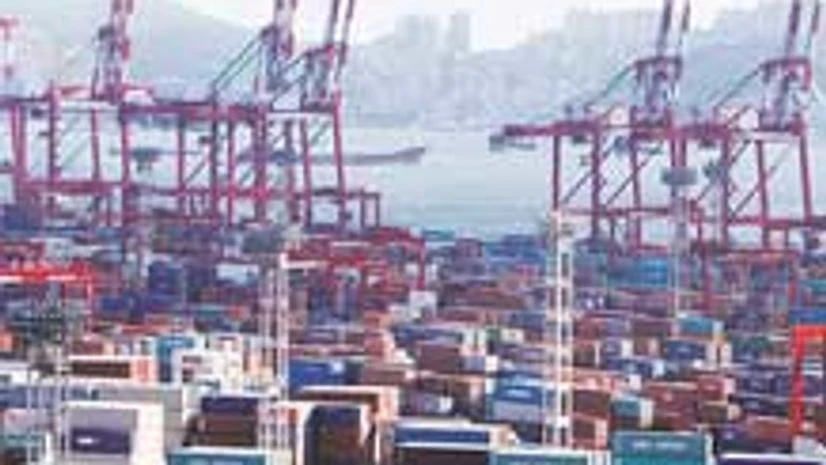While the nation is reeling under the dizzying fall of the Rupee, some exporters are anxious to count themselves in the list as well.
The value of the Indian Rupee has depreciated 16% since May and the downward spiral accelerated during the last couple of days with the currency testing a new low of Rs 64 13/dollar and Rs 100.35/UK pound on Tuesday.
Though firms who derive their revenue in foreign currencies are seen beneficiaries of the fall in the Rupee's value, retail exporters say the volatility is equally injurious to them in planning their orders.
More From This Section
Analysts say exporters are undoubtedly gaining from the depreciation of their home currency, even if the benefit is somewhat eliminated by higher input costs due to the inflation at home.
Tirthankar Patnaik, economist at Religare Securities, said the competitive edge that exporters gain from the falling value of the Rupee may be shaved over by the higher costs incurred by their production units in India.
“There is a higher realization, no doubt. But this is not translating into higher volumes and that is something to be cautious about. The global demand scenario has not been very strong either,” Patnaik said.
It may be the right time to lock in profits by hedging or strengthening the orderbook, but exporters are pressurized by clients asking for discounts or suppliers adjusting their prices. Jewellery maker, Rajesh Exports, which operates the brand Shubh Jewellers but derives 90 % of its sales from exports, said its order book has “definitely not shown any rise” from the last quarter.
“There is a notion that exporters gain a lot from the falling value of the Rupee, but that is not the case. The benefit is surely not as large as perceived to be, as importers also track foreign exchange rates and adjust the prices accordingly. The benefit, if any, is very marginal,” Rajesh Exports' Mehta said.
One must remember that the exporters of garments and jewellery do not import their brand, hence profit margins are very low, said analyst Abneesh Roy of Edelweiss Securities. "But the fall in the value of the rupee certainly helps exporters realise higher margins or at least gives them incentive to boost volumes,” he said.
Gokaldas Exports, one of the largest apparel exporters in India, recently said that the demand from western economies has been weak in the backdrop of continuing sluggish economic situation prevailing in the global market.
"Due to weak demand, retail prices globally continue to be under pressure affecting price realisations. In India, inflationary condition continue to persist which is leading to rise in wages as well as other operational expenses," the management noted.
While senior textile industry officials indicated that while there may be a 10-12 % benefit on an annualised basis, most of the companies are not able to take full benefit by going in for forward cover on the currency.
Gokaldas Exports CEO Gautam Chakravarti added that such volatility in the Rupee is not good for the businesses and customers are pushing them to lower prices on a regular basis.
"The input costs, which has an import element as well, is levelling off the Rupee depreciation factor. On top of this, the various measures which RBI is taking, is pushing up the borrowing costs and overall a stable Rupee is better for businesses," Chakravarti added.
The Government has embarked on various measures to stem the fall of the Rupee, but none have made any material impact in arresting the decline.
Industry associations have said that the Government’s recent actions have damaged domestic and international investors, as instability in the Indian business environment persists.
“These knee-jerk steps have obviously back-fired and the rupee continues to depreciate to alarming levels. The Government must immediately withdraw these short term steps and initiate fundamental structure reforms to encourage investment, promote infrastructure, speed up existing projects, make doing business easy,” H V Harish, President of an leading industry association in Bangalore said.

)
